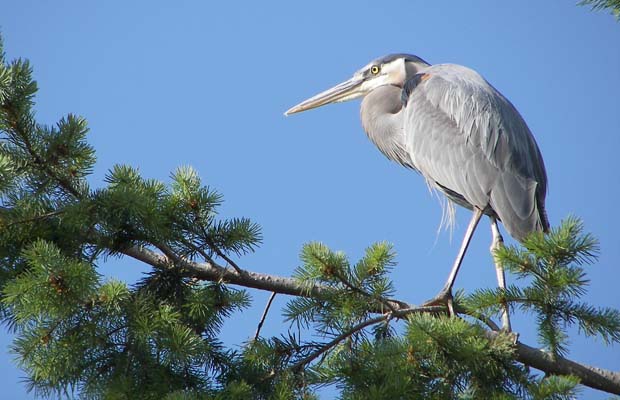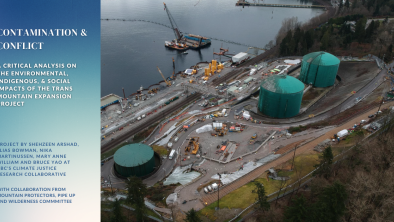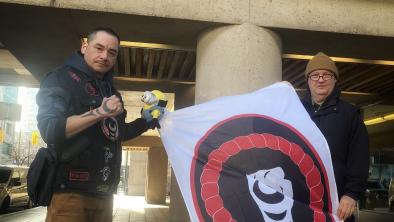Wilderness Committee raises alarm over oil-tanker threat to Stanley Park wildlife
Vancouver Sun

VANCOUVER -- At least 236 bird species that rely on Stanley Park for food, wintering, migration stopovers, or breeding habitat would be at risk from an oil-tanker spill in Burrard Inlet, a Wilderness Committee report warned Wednesday.
The report, written by Greenpeace International co-founder Rex Weyler, notes that a spill would have devastating and long-lasting impacts on aquatic habitat critical to birds. Among them are globally significant populations of wintering Barrow's goldeneye and thousands of surf scoters, a species of special concern in B.C.
The shorelines and waters surrounding Stanley Park are classified as an Important Bird Area of Canada, with up to 17,000 individual birds using the 400-hectare park every year, the report notes.
An oil spill along almost nine kilometres of Stanley Park shoreline would damage ecosystems ranging from kelp beds to rocky shorelines, sand, and intertidal mudflats. Shoreline habitats also support marine algae, shellfish, fish, and mammals such as raccoons, mink, and river otters found in the park.
Texas-based Kinder Morgan is proposing a $4.1-billion Trans Mountain pipeline expansion to its Burrard Inlet terminal in Burnaby that it says would increase capacity to 750,000 barrels a day from 300,000.
An earlier proposal for a $5-billion expansion would have resulted in 25 to 30 tankers a month through the company's Westridge Burnaby terminal.
The report concludes that federal, provincial and municipal governments should work to ensure the protection of Stanley Park by banning the export of tarsands oil through Burrard Inlet, and by convening a meeting of stakeholders around the Salish Sea to address habitat protection and restoration.
Weyler served as a director of Greenpeace in the 1970s, and is currently active with Tanker Free BC, protecting the B.C. coast from oil tankers. The Stanley Park Ecology Society also contributed to the report.


